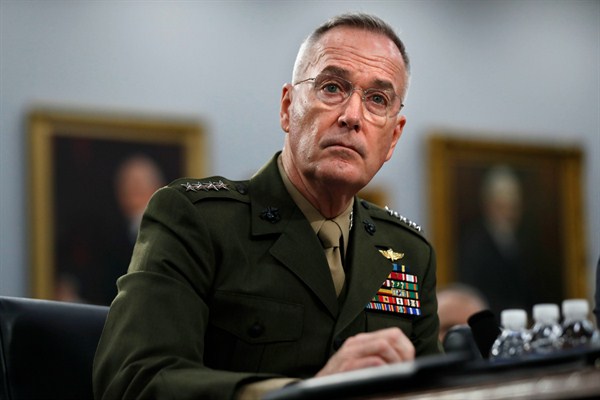After almost 18 years of conflict against an array of extremist groups, all in the name of fighting terrorism, Americans have grown frustrated. While al-Qaida, the Islamic State and other groups in the vast network of transnational jihadism have been pummeled by the U.S. military, they continue to regenerate and spread. When weakened in one place, this network shifts to another. America’s partners in this conflict have grown stronger, but they still show no sign of being able to manage the threat of extremism without extensive help. Among the American people, patience is running out.
Their frustration has led to finger-pointing. Increasingly, military leaders are blamed for what is seen as a flawed strategy, whether in a global sense or in this conflict’s primary battlegrounds like Iraq and Afghanistan. Criticism is mounting on both the political left and the right.
While the American public’s frustration is understandable, blaming the generals is wrong: America’s strategic problems are not purely or even mostly the military’s fault. If there is a failure of strategy, its roots are deep in the way the United States has approached the conflict with jihadism and how national leaders have portrayed it. But that is also where solutions lie.

